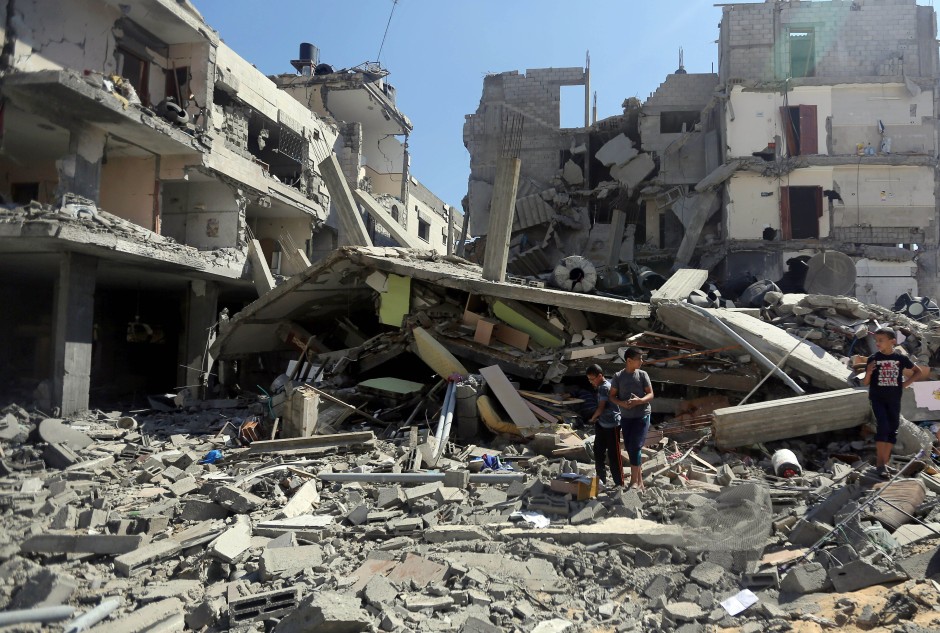Israel and Hamas have resumed fighting, having rejected each other’s irreconcilable demands at fruitless talks in Cairo under the auspices of Egypt.
On Aug. 19, eight hours before the latest truce was to have expired, gunmen in the Gaza Strip fired rockets into Israel. In response, the Israeli and Palestinian delegations left Cairo, while Israel bombed targets in Gaza, setting the stage for what may be a lengthy war of attrition and a renewal of suicide attacks.
Hamas denied responsibility for breaking the ceasefire, lending credence to the theory that more extreme Palestinian groups, such as Islamic Jihad, had breached the truce in frustration over Israel’s refusal to accept its conditions. Hamas soon joined the battle, taking credit for firing rockets at Tel Aviv and Ben-Gurion Airport. By Aug. 20, both groups had launched almost 200 rockets at Israel, some of which were destroyed in the air by the Iron Dome system.
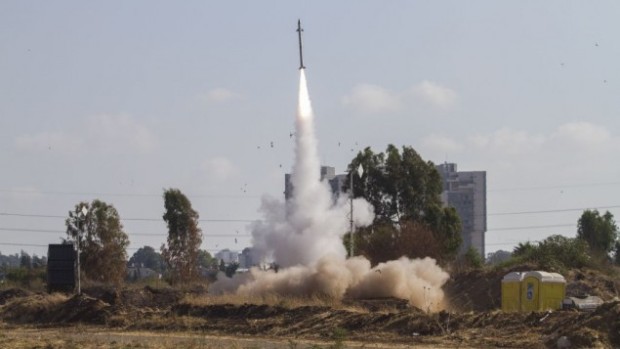
Israel, carrying out a series of air strikes in Gaza, bombed the residence of Mohammed Deif, the leader of the Qassam Brigades, Hamas’ armed wing, killing his wife and infant son. Deif’s fate remains unknown at this juncture, but Deif is like a cat with nine lives, having survived several Israeli assassination attempts in the past few years. Israeli Prime Minister Benjamin Netanyahu has warned that Hamas’ leaders are in Israel’s cross hairs.
The breakdown of the truce seemed preordained, given the two sides’ conflicting objectives.
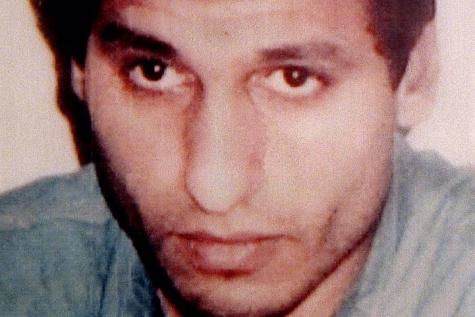
Israel’s ultimate goal is to disarm Hamas and demilitarize Gaza, which has become an armed camp since Hamas’ seizure of Gaza in 2007. In the short term, as Netanyahu has said, Israel seeks “the restoration of quiet and security for all (its) citizens.”
Hamas’ chief goal is the complete lifting of Israel’s naval siege of Gaza, which has inflicted damage on Gaza’s economy. Hamas also wants to build a seaport and rebuild the airport, which was bombed by Israel following the eruption of the second Palestinian uprising in September 2000. In addition, Hamas seeks the release of Palestinian prisoners who were rearrested in June following the murder of three Israeli teens in the West Bank and of prisoners who were due to be released in April under an agreement signed by Israel and the Palestinian Authority.
Despite its willingness to observe a ceasefire and conduct indirect negotiations with Hamas, Israel never intended to lift the blockade of Gaza. As long as Hamas rejects Israel’s existence and refuses to renounce terrorism, Israel will not permit it to import weapons, munitions and dual-use building materials, like concrete, with impunity.
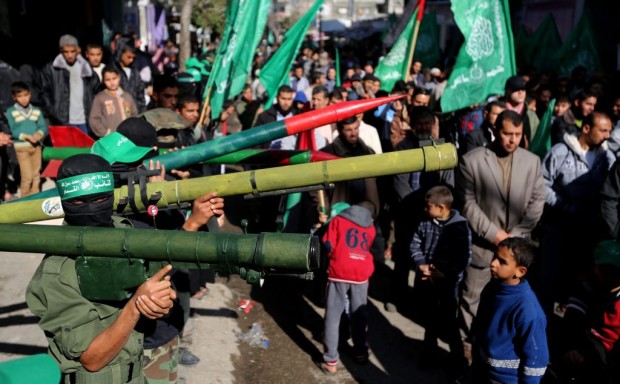
A few days before the latest truce fell apart, Hamas official Osama Hamdan threatened Israel with a resumption of war unless it acceded to all its demands. Another Hamas spokesman, Sami Abu Zuhri, said that a long-term ceasefire would be unattainable unless Israel completely lifted its seven-year naval siege of Gaza.
Netanyahu, claiming that Hamas had suffered a massive military setback during the first stage of Operation Protective Edge, declared that Israel would neither negotiate under fire nor reward aggression: “If Hamas thinks its defeat on the battlefield will be papered over by a victory at the negotiating table, it’s mistaken. If Hamas thinks we can’t stand up to (warfare) for a long time, it’s mistaken. If Hamas thinks that a continued drip-drip of rocket fire will prompt concessions from us, it’s mistaken.”
Israeli Defence Minister Moshe Yaalon, calling for patience and resilience, delivered the same resolute message: “If Hamas thinks it will wear us out, it is mistaken.”
And therein lies the impasse.
Israel, working from the reasonable assumption that Hamas is the aggressor, has no intention of giving in to its demands. “If the deal is seen … as a victory for Hamas, that’s bad for us, bad for the future and bad for deterrence,” said Dan Meridor, a former Israeli cabinet minister. “My approach would be not to go for any agreement with Hamas, because any agreement would give them something and that’s a mistake.”
True enough.
Hezbollah, a more formidable enemy, would draw certain conclusions from the perception of Israeli weakness, while Hamas would be encouraged to chip away at Israel’s resolve.
It’s clear that Hamas cannot afford to end the war without tangible achievements. Hamas killed 64 Israeli soldiers and three civilians, fired some 3,000 rockets at Israel, shocked Israelis with its ability to build attack tunnels, disrupted daily life in Israel and, most important, stood up to Israel without bending.
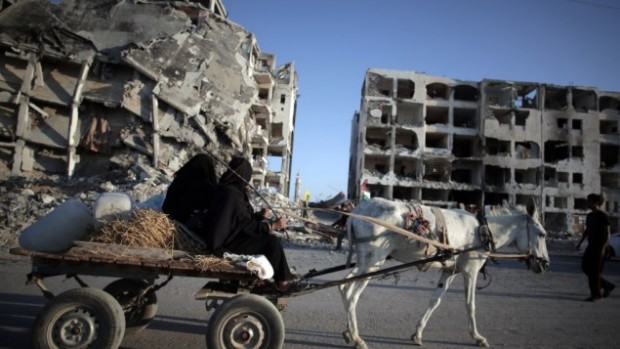
The price, however, was inordinately high. More than 1,900 Palestinians were killed by Israeli air strikes and artillery and tank bombardments. And at least 10,000 buildings were destroyed, causing $6 billion worth of damages and leaving Gaza in ruins.
Ultimately, Hamas can only justify this war of death and destruction to the Palestinian public by forcing Israel, as well as Egypt, to lift the blockade and allow the free and unhindered movement of people and goods to and from Gaza.
Israel will not budge, and rightly so, unless Hamas undergoes a radical ideological transformation, which is extremely unlikely.
One suspects that Islamic Jihad and Hamas broke the latest truce due to their dissatisfaction with Egypt’s 11-point proposal for an extended truce. Under its terms, Israel would have eased the blockade in phases in exchange for concessions, not lifted it in one fell swoop, as the Palestinians demanded.
They have been serial truce breakers. Since July 15, when Israel accepted Egypt’s ceasefire plan and Hamas did not, they have unilaterally violated a succession of humanitarian truces.
Given Hamas’ intransigence, Netanyahu has prepared Israelis for a drawn-out struggle with Hamas and its allies. Israelis with long memories remember that Israel fought wars of attrition with Egypt after the 1967 Six Day War, with Syria after the 1973 Yom Kippur War and with the Palestinians after the 2009 and 2012 wars in Gaza.
Israel, too, may yet face the specter of Hamas suicide bombers, who wreaked terror on Israelis from 2001 to 2005.
Certainly, Netanyahu is under increasing pressure from hardliners in his cabinet to strike the Palestinians even harder.
Foreign Minister Avigdor Liberman has called for a sustained ground offensive to root out Hamas. “We see that Hamas’ minimum demands are way beyond the maximum that Israel can agree to,” he said. “This situation cannot continue. What is left is to defeat Hamas, clean the area and leave as quickly as possible.”
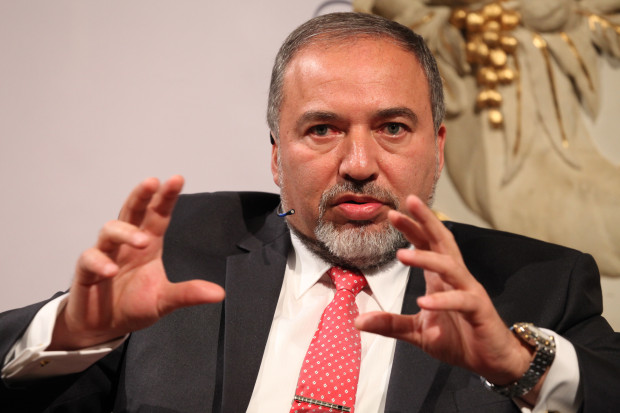
Interior Minister Gideon Saar has said, “We must break Hamas’ military strength in Gaza. This was true before and it’s true now.”
Home Front Minister Gilad Erdan has said that Israel may have no alternative but to conquer Gaza and topple Hamas.
Minister of Economics and Trade Naftali Bennett has said that talks with Hamas are a waste of time and that Israel should “take our fate into our own hands.”
Yaakov Amidror, Netanyahu’s former national security advisor, has recommended drastic steps, too. As he put it, “The reoccupation of Gaza is on the table now more than ever. You can’t do this from the air. Everyone knows (Hamas) is launching rockets from the center of Gaza City, so we’ll have to go into the center of Gaza City.”
At the end of the day, there is no military solution in Gaza. The problem can only be resolved politically through direct negotiations with the Palestinian Authority, which heads a national unity government backed by Hamas.
Eventually, only the Palestinians themselves can resolve the problem posed by Hamas rejectionism.
